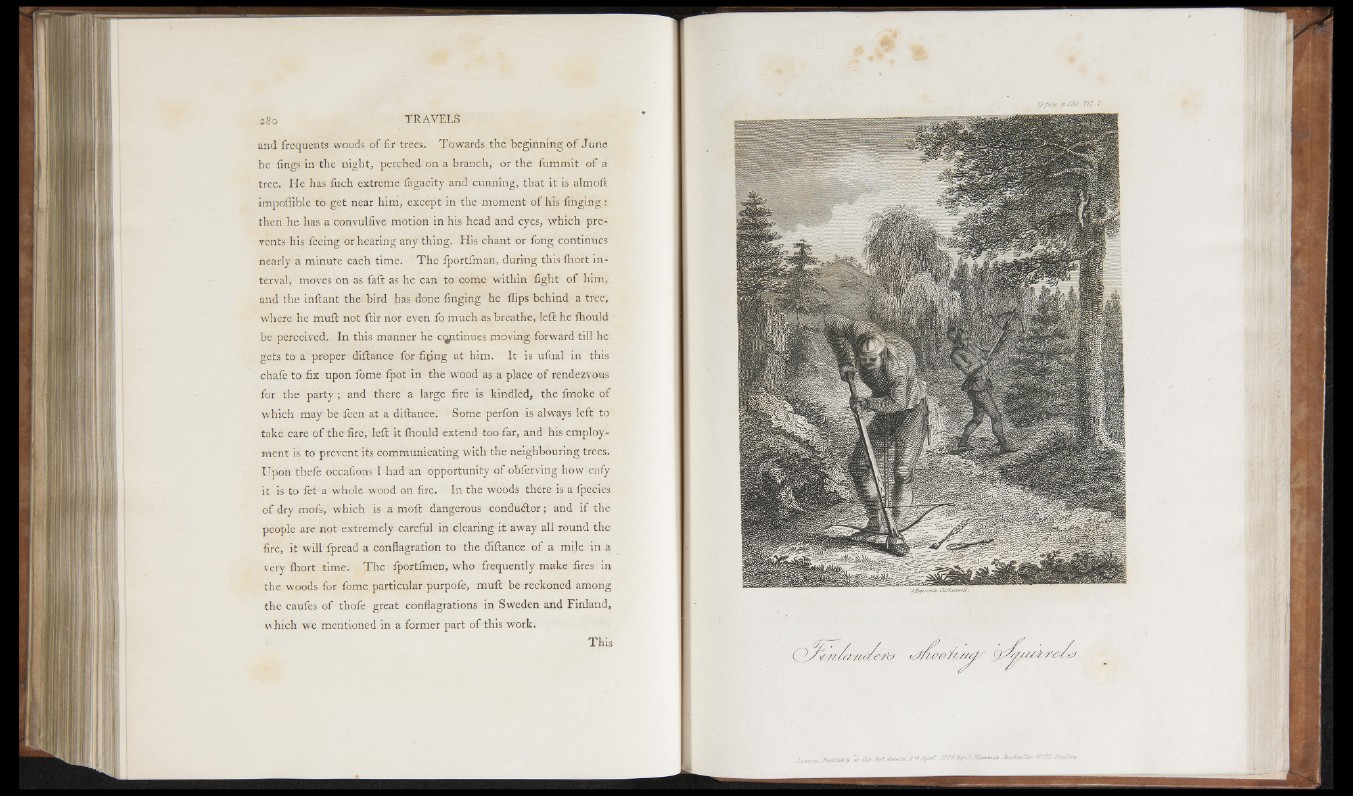
and frequents woods o f fir trees. Towards the beginning o f June
he fings in the night, perched on a branch, or the fummit o f a
tree. He has fuch extreme fagacity and cunning, that it is almoft
impoflible to get near him, except in the moment o f his fing ing:
then he has a convulfive motion in his head and eyes, which prevents
his feeing or hearing any thing. His chant or fong continues
nearly a minute each time. The fportfman, during this fhort interval,
moves on as fail as he can to come within fight o f him,
and the inftant the bird has done finging he flips behind a tree,
where he muft not ftir nor even fo much as breathe, left he fliould
be perceived. In this manner he e^jitinues moving forward till he
gets to a proper diftance for filing at him. It is ufual in this
chafe to fix upon iome Ipot in the wood as a place o f rendezvous
for the party ; and there a large fire is kindled, the fmoke o f
which may be feen at a diftance. Some perfon -is always left to
take care o f the fire, left it fhould extend too far, and his employment
is to prevent its communicating with the neighbouring trees.
Upon thefe occafions I had an opportunity o f obferving how eafy
it is to fet a whole wood on fire. In the woods there is a fpecies
o f dry mofs, which is a moft dangerous conductor; and if the
people are not extremely careful in clearing it away all round the
fire, it will fpread a conflagration to the diftance o f a mile in a
very ihort time. The fportfmen, who frequently make fires in
the woods for fome particular purpofe, muft be reckoned among
the caufes o f thofe great conflagrations in Sweden and Finland,
which we mentioned in a former part o f this work.
This